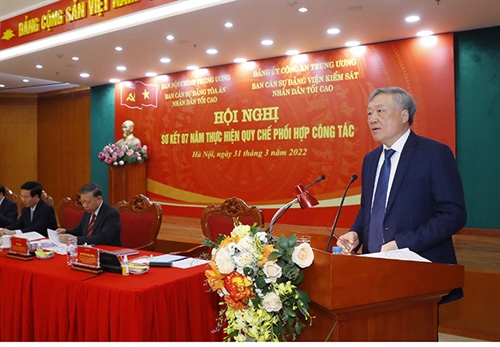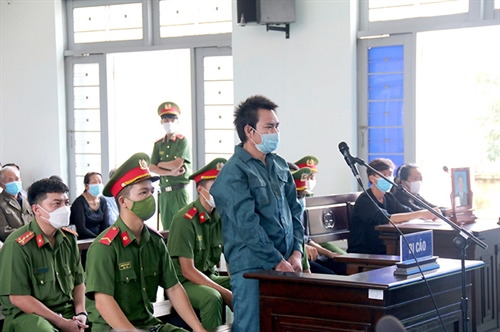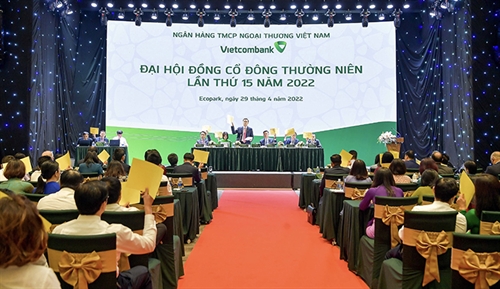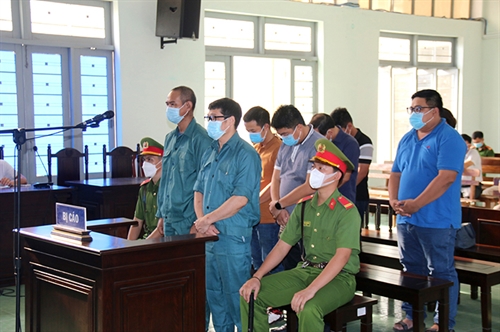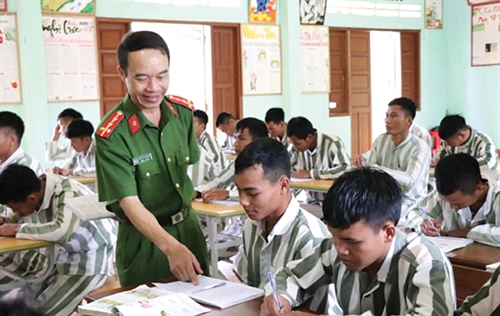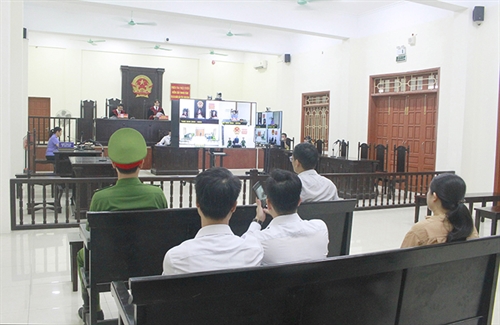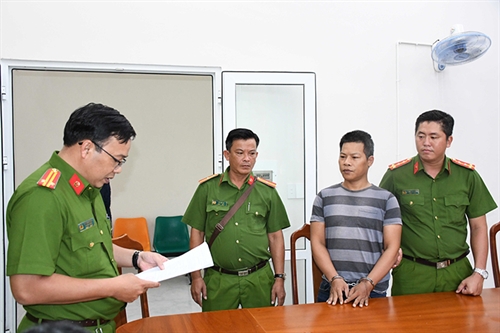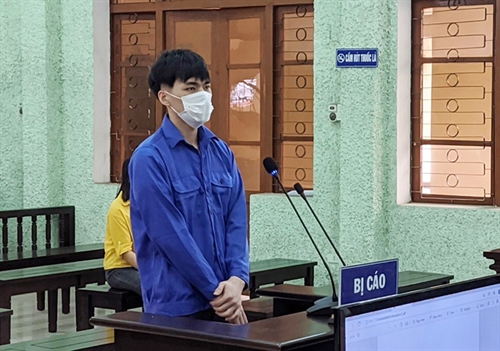To date, Vietnam has legislated judicial precedents in general and civil precedents in particular. This article highlights legal grounds for development and analyzes the actual status of civil precedents in Vietnam, then makes some suggestions for promoting the development of civil precedents.
Nguyen Van Nam, LL.D.
Vice Dean of the Law Faculty
People’s Security Academy
Legal grounds for application of civil precedents in Vietnam
At present, judicial precedents (precedents) are regarded as a source of law in Vietnam’s legal system. Specifically, Article 22.2.c of the 2014 Law on Organization of People’s Courts (the Law) assigns the Supreme People’s Court’s Judicial Council (the Judicial Council) “to select its cassation regulations as well as courts’ legally effective judgments and rulings of standard nature for review and development into precedents, and announce them for courts to study and apply in their adjudication.” After the Law took effect, on October 28, 2015, the Judicial Council adopted Resolution 03/2015/NQ-HDTP, the first of this kind in Vietnam’s court system, on the process of selection, announcement and application of judicial precedents. This Resolution was later replaced by Resolution 04/2019/NQ-HĐTP, on the process of selection and announcement of precedents.
Under Vietnamese law, precedents are defined as “arguments and decisions in legally effective judgments and rulings of courts for specific cases or matters, which are selected by the Judicial Council of the Supreme People’s Court and announced by the Chief Justice of the Supreme People’s Court as precedents for the courts to study and apply in their adjudication”[1].
Like the civil law systems, Vietnam has focused on developing its civil law[2] since it embarked on the cause of renewal and started to build its legal system towards promoting a market economy. Particularly in the civil law, precedents has been clearly recognized in the 2015 Civil Code’s General Provisions[3] as a source of law in dealing with civil cases. Similarly, the 2015 Civil Procedure Code guides the application of precedents in the trial of civil cases, stipulating: “The court may not refuse to settle a civil case or matter on the grounds of the non-existence of applicable law. A civil case or matter for which applicable law does not exist is the one that falls within the scope of regulation of civil law but at the time it arises and the court is requested to settle it, there is no applicable law.”[4] Regarding the principles of settlement of a civil case or matter in the absence of applicable law, this Code provides: “Precedents to be studied and applied by the court to the settlement of a civil case or matter are those that have been selected by the Judicial Council of the Supreme People’s Court and announced by the Chief Justice of the Supreme People’s Court.”[5] It is also clearly provided in this Code that precedents are regarded as a basis for courts to make first-instance and appellate civil judgments[6].
Therefore, it can be said that Vietnam has created firm legal grounds for the identification and application of precedents, including civil precedents, in adjudication activities.
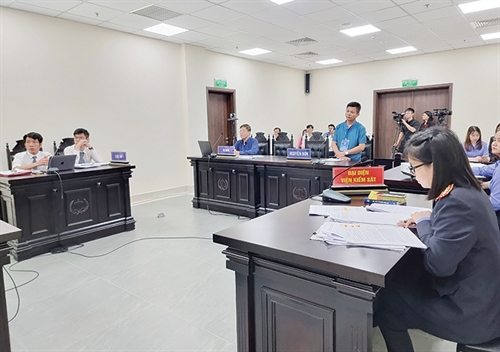 |
| A hearing of the Civil Tribunal of the Hanoi People’s Court__Photo: Kim Anh/VNA |
Practical development of civil precedents in Vietnam
Practical status of civil precedents
Although the development space for precedents, particularly civil precedents, is large[7], the process of selection of courts’ quality judgments and rulings to be developed into precedents involves numerous steps.
Under the Judicial Council’s Resolution 04/2019/NQ-HDTP, the process of selection and announcement of a precedent consists of five steps: (i) proposing selection of a judgment or ruling to be developed into a precedent; (ii) collecting opinions on the selected judgment or ruling; (iii) collecting opinions of the Advisory Board on Precedents; (iv) approving the precedent; and (v) announcing the precedent. In special cases, the Judicial Council may announce precedents according to summary procedures.
With the most number, civil precedents are playing the leading role in redressing limitations and inadequacies of Vietnam’s current civil law, particularly the Civil Code, in various aspects and concerning various matters falling within its scope of regulation[8]. This is attributable to fairly complete and consistent provisions of the Law on Organization of People’s Courts, Civil Code, Civil Procedure Code, and guiding resolutions of the Judicial Council. Below are analysis of the main contents of 30 civil precedents which have been officially announced by the Judicial Council:
Firstly, the announced precedents developed from civil cases directly involving disputes over land and residential house use rights account for a major proportion (over 50 percent) of the total civil precedents[9]. This reveals the reality that the principles and provisions of the civil law on land use rights and land-attached property rights are always complicated and prone to disputes falling beyond lawmakers’ anticipation. To deal with this reality, it is quite logical for the Judicial Council to select and announce relevant precedents. As legal problems in the domain of land and housing laws in Vietnam remain rampant and complicated, there is always an enormous room for the development of precedents concerning this domain.
Secondly, precedents in the field of inheritance help pave the way for the resolution of disputes over legacy or estate division. As legal institutions on inheritance always form a central part in Vietnam’s civil law, the fact that numerous disputes have arisen outside the scope of regulation of the current Civil Code has promoted the announcement of precedents on property inheritance, particularly those aimed at solving legal problems related to the division of legacies being land use rights[10].
Thirdly, more and more precedents on civil transactions and civil contracts have been announced, affirming the official direction of applying the civil law’s provisions on conditional civil transactions that become null and void for lack of necessary conditions[11].
Among almost all precedents announced by the Judicial Council to date, there are those developed from cases directly or indirectly involving civil contracts, including residential house purchase and sale contracts, land use rights transfer contracts, etc. However, there also exist types of civil contracts in special fields such as insurance contracts (policies) from which disputes have actually arisen and posed problems to courts in the process of settlement. In that context, the Judicial Council has selected precedent 23/2018/AL on validity of a life insurance contract when the insurance purchaser refuses to pay insurance premiums due to the fault of the insurance business.
Fourthly, precedents in the field of marriage and family remain few despite the fact that matters in this legal field are complicated[12].
Fifthly, some initial precedents concerning civil procedure and arbitration problems have been developed. For example, precedent 42/2021/AL on the right to choose a court to settle a dispute between consumers in case the model contract features an arbitration agreement.
Lastly, some precedents have addressed newly arising legal relations relating to customs, cultural and spiritual lives of different regions on which relevant laws have not yet guided how to settle arising disputes. For example, precedent 56/2022/AL deals with the settlement of a dispute in the grave removal[13].
Some recommendations
As analyzed above, the demand for precedents in general and civil precedents in particular is high and the practical development of civil precedents in Vietnam is facing urgent requirements of handling practical legal matters.
Therefore, the court system should set out guidelines for reviewing and systematizing civil judgments and rulings that are likely to be selected and developed into precedents and quickly incorporate them in the process of precedent selection and announcement. The development of civil precedents in Vietnam should also seek opinions, proposals and recommendations of legal experts, jurists and lawyers. In the process of trial of civil cases, judges and lawyers should take account of more and more civil precedents, thereby importantly contributing to improving the adjudicative effectiveness of the court system in line with the judicial reform orientations set out by the Party and the State.-
[1] Article 1 of Resolution 04/2019/NQ-HDTP of the Judicial Council, on the process of selection and application of precedents.[2] Since the renewal period, Vietnam has enacted three versions of the Civil Codes in 1995, 2005 and 2015.[3] Article 6 of the 2015 Civil Code, on application of analogous law, stipulates:“1. In case relations arise within the scope of regulation of civil law in which it is neither agreed upon by the parties nor prescribed by law, and no customary practices are applied, the provisions of law that regulate similar civil relations shall apply.[4] Article 4.2 of the 2015 Civil Procedure Code.[5] Article 45.3 of the 2015 Civil Procedure Code.[6] Articles 264.2, 266.2.b, and 313.4 of the 2015 Civil Procedure Code.[7] According to the Supreme People’s Court’s Website on Precedents, at https://anle.toaan.gov.vn/webcenter/portal/anle/[8] Article 1 of the 2015 Civil Code provides: “This Code provides the legal status, legal standards for the conduct of individuals and legal persons; personal and property rights and obligations of individuals and legal persons in relations established on the basis of equality, freedom of will, independence of property, and self-responsibility (referred collectively to as civil relations).”[9] For example, precedent 35/2020/AL concerns a case of transfer by a Vietnamese, who plans to go to reside abroad, of an agricultural land area to a Vietnam-based person for use.[10] For example, precedent 26/2018/AL concerns the determination of starting point of time for counting the statute of limitations for making requests for division of the inheritance being a real estate, and precedent 34/2020/AL concerns the right to make a will to decide on the compensable land value in case of recovery of a land area by the State with compensation.[11] For example, precedent 39/2020/AL on determining that a conditional civil transaction is null and void for required conditions can never exist. [12] Five out of the 30 existing civil precedents concern the marriage and family relations, setting guidelines for settlement of complicated marriage and family cases. For example, precedent 41/2021/AL on termination of an actual marriage.[13] https://anle.toaan.gov.vn/webcenter/portal/anle/chitietanle?dDocName=TAND281187
